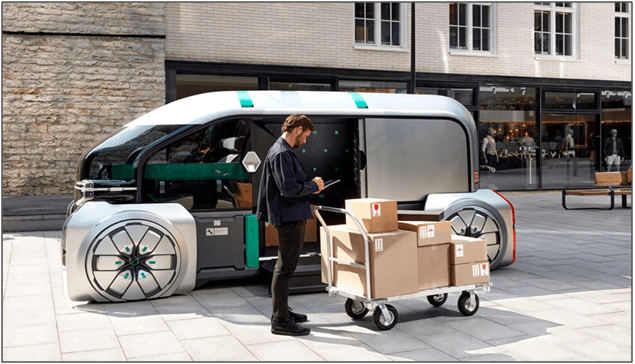In today’s modern world, technology is key to every business in all industries to stay competitive. Businesses that lagged in technology would miss out the capability to compete and would be unable to rival against their competitors. The logistics industry is of no exception. The GPS technology is an undeniable tool for every logistics company to leverage and bring their business to the next level. Logistics companies that use this technology not only provide customers with new level of experiences, but also bring the entire logistics operations to its highest optimum in executing the processes with great speed and accuracy. This article discusses the segments where GPS technology can be applied to key logistics practices.
Table of Contents
GPS Tracking for Inventory
GPS tracking technology is useful for vast resources monitoring and protection and including solutions that could benefit a wide range of value-add services like fleet tracking, delivery, and security. Mobile services like geo-fencing will provide real time information on where an item is stored or located in a warehouse, or a queried item has reached the warehouse from its pickup location so a real time update will be sent to the customer. Other than item tracking, it can also be used to monitor the people movement, such as drivers and their driving habits on how they performed their roles and responsibilities in handling and delivering goods to customers. Tagged items with tracking devices are used to help and protect assets from small value items to high value items. Items tagged with GPS portable tracking devices would also have their security coverage enhanced. These tagged items could be monitored remotely and if any unauthorized actions such as removing them from their designated locations would trigger alerts to the monitoring application and the warehouse security staffs could be alerted. With enablement and automate GPS tracking in the warehouse, logistics businesses can effectively optimize the operation tasks and promote faster delivery services to their customers.

GPS in Courier Delivery Service
GPS technology has been the greatest tool for transportation in the courier delivery services. With tagged GPS devices on the items, real time information enables the courier delivery service players to plan their delivery routes, schedules and timing efficiently and effectively. Through the Google maps application, real-time traffic information and/or best possible routes information will furnish delivery drivers to make informed decisions on the route to deliver items to meet the promised delivery time. The tight connection of GPS mobile devices data with the Internet of Things (IoT) application creates a profound value-add informative and real-time updates where for example, the estimated time of arrival for their items. This capability will bring the customer’s experience with the business to the next level of trust.
GPS in Last-mile Delivery Service
Just over the year of 2000, the technology of Unmanned Aerial Vehicle (UAV) had a huge leap with the world’s advancement in nano technology. Sophisticated mobility devices are now shrunk in size and cost productions are also greatly reduced. This technology change has created an opportunity to have UAV drones equipped with GPS module made affordable for business use. For last-mile services in logistics businesses, the GPS technology can be fixed on a drone for delivering urgent products such as medical aids for patients in emergency situations.

Medical aids or even human organs with time critical can be air flown from one hospital to another hospital on urgent basis. Another example on how GPS technology can be used in the last-mile service is to deliver medicines to remote settlements deep in a jungle where road infrastructures are lacking. By maneuvering the drone through given GPS satellite coordinates, drones can be controlled remotely to fly to the remote settlement area, land, offload the load, and return to base. Drones with GPS application is still very new to-date to many delivery service companies. Large delivery companies like DHL have the capability to embark into this technology which as a result, puts them as one of the leaders in the last-mile service business.
The full content is only visible to SIPMM members
Already a member? Please Login to continue reading.

